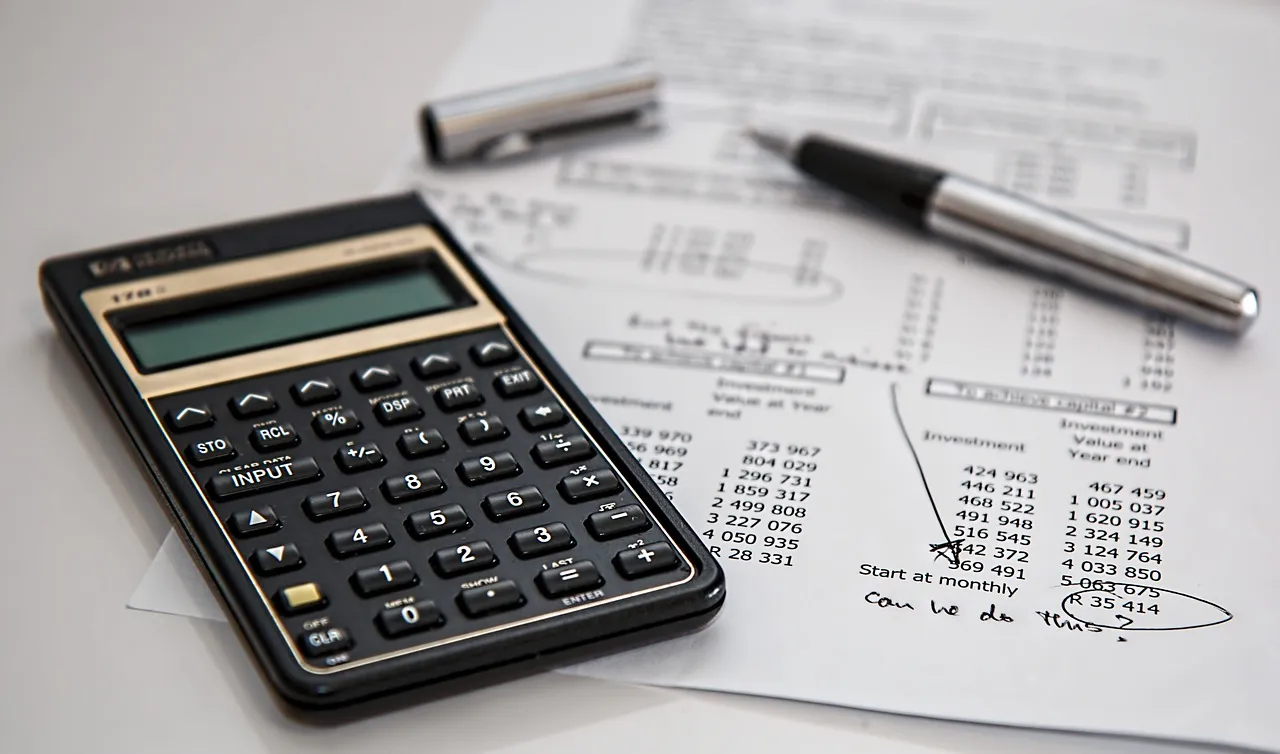California Car Lease Tax: A Comprehensive Guide
Leasing a car in California means paying sales tax, but how much tax on a leased car in California depends on where you live and lease details. This comprehensive guide will explain how California car lease tax works.
If you’re short on time, here’s a quick overview: In California, sales tax applies to leased vehicles based on the total lease price. Tax rates vary by location but generally range from 7.25% to 10%. Upfront taxes are charged on the full lease value. There are ways to potentially lower your tax burden when leasing a car in California.
California Car Lease Sales Tax Rates
When it comes to leasing a car in California, understanding the sales tax rates is essential. The sales tax rates on leased vehicles in California range from 7.25% to 10%, depending on your location. This means that when you lease a car in California, you will be responsible for paying sales tax on the monthly lease payments.
Higher tax rates apply in cities like Los Angeles and San Francisco.
If you live in cities like Los Angeles or San Francisco, you can expect to pay a higher sales tax rate on your leased vehicle. These cities have local taxes that are added on top of the state sales tax rate.
For example, Los Angeles has a sales tax rate of 9.5%, while San Francisco has a sales tax rate of 8.5%. These higher tax rates can significantly impact the overall cost of leasing a car in these areas.
It’s important to note that the sales tax rate is based on the location where the car is registered, not where it is leased. So even if you lease a car in a city with a lower tax rate, you will still be responsible for paying the sales tax rate of the city where the car is registered.
For more information on the specific sales tax rates in different cities in California, you can visit the California Department of Tax and Fee Administration website. This website provides a comprehensive list of the sales tax rates for different cities and counties in California.
Understanding the sales tax rates on leased vehicles in California is crucial for anyone considering leasing a car. It’s important to factor in these tax rates when budgeting for a lease and to be aware of any additional local taxes that may apply.
By being knowledgeable about the sales tax rates, you can make informed decisions and ensure that you are not caught off guard by unexpected costs.
How Lease Tax is Calculated
Sales tax is charged on the total lease price, including fees and down payment.
When it comes to calculating lease tax in California, it’s important to understand that sales tax is charged on the total lease price, which includes fees and down payment. This means that not only your monthly lease payments are subject to tax, but also any additional charges or amounts paid upfront.
For example, let’s say you’re leasing a car with a total lease price of $30,000, and you made a down payment of $3,000. The sales tax will be calculated based on the $30,000, not just on the monthly payments. This is because the state considers the total lease price as the taxable amount.
It’s worth noting that the sales tax rate may vary depending on the county in California. So, it’s always a good idea to check the specific sales tax rate in your county to get an accurate estimate of the lease tax you’ll be paying.
Tax is paid upfront on the full lease value, not just monthly payments.
Another important aspect to consider when it comes to lease tax in California is that the tax is paid upfront on the full lease value, not just on the monthly payments. This means that you’ll need to include the tax amount in your initial payment when signing the lease agreement.
Let’s say your monthly lease payment is $300, and the lease term is 36 months. If the sales tax rate is 8%, the tax amount for the full lease term would be $2,592. This amount would need to be paid upfront, along with any other fees and the down payment, when you sign the lease agreement.
It’s important to be aware of this upfront tax payment requirement to properly budget and plan your lease agreement. Failure to include the tax amount in your initial payment could result in unexpected financial burdens.
If you’re unsure about the specific lease tax calculation for your situation, it’s always a good idea to consult with a tax professional or contact the California Department of Tax and Fee Administration for guidance.
Strategies to Reduce Lease Tax
When it comes to leasing a car in California, understanding the tax implications is essential. The lease tax can add a significant amount to your monthly payment, but there are strategies you can employ to help reduce this expense. Here are a few strategies to consider:
Opt for a lower purchase price vehicle with rebates and discounts.
One way to lower your lease tax is to choose a vehicle with a lower purchase price. Vehicles with a lower purchase price generally have lower lease taxes. Additionally, look for vehicles that come with rebates and discounts. These incentives can help offset the lease tax and lower your overall costs.
Remember to research and compare different vehicle options to find the best deals available.
Consider leasing in lower tax locations within California.
Another strategy to reduce lease tax is to consider leasing in lower tax locations within California. The tax rates for leasing a car can vary depending on the county and city you reside in. Some areas have lower tax rates compared to others, so it may be worth exploring nearby locations to find a more favorable tax rate.
Keep in mind that this strategy may require more research and potentially involve additional travel, but it could result in significant savings over the course of your lease.
By implementing these strategies, you can potentially lower your lease tax and save money on your monthly payments. Remember to consult with a tax professional or lease expert for personalized advice based on your specific situation.
Sales Tax on Lease Down Payment
When leasing a car in California, it’s important to understand how the sales tax applies to the down payment. Just like the rest of the lease value, the down payment is subject to sales tax. This means that you will have to pay sales tax on the amount you put down upfront.
The down payment on a lease is subject to sales tax like the rest of the lease value.
Whether you choose to make a substantial down payment or a minimal one, the sales tax will still apply to that amount. For example, let’s say you decide to lease a car with a down payment of $5,000. If the sales tax rate in your area is 8%, you would need to pay $400 in sales tax on top of the $5,000 down payment.
Pro tip: It’s essential to consider the sales tax implications when deciding on the amount of your down payment. If you’re concerned about paying a higher sales tax upfront, you may opt for a lower down payment instead.
A lower down payment means lower total sales tax.
One advantage of making a lower down payment is that it can help reduce the total sales tax you’ll have to pay. Since sales tax is calculated based on the lease value, a lower down payment means there is less value subject to tax.
For instance, let’s say you’re leasing a car with a total value of $30,000 and the sales tax rate is 8%. If you make a down payment of $3,000, you would only be taxed on the remaining $27,000. This would result in a sales tax of $2,160.
However, if you decide to make a down payment of $10,000, you would be taxed on the remaining $20,000, resulting in a sales tax of $1,600.
Remember: While a lower down payment may reduce your total sales tax, it’s important to consider other factors such as monthly payments and interest rates when deciding on the amount of your down payment.
For more information on California car lease taxes, you can visit the California Department of Tax and Fee Administration website.
Sales Tax on Leased Electric Vehicles
When it comes to leasing an electric vehicle in California, understanding the sales tax implications is crucial. California offers several incentives and exemptions for electric vehicles, including a potential sales tax exemption for fully electric vehicles.
However, it’s important to note that plug-in hybrids do not qualify for this exemption.
Fully electric vehicles may qualify for a sales tax exemption in California.
California is known for its commitment to clean energy and reducing greenhouse gas emissions. As part of these efforts, the state offers a sales tax exemption for fully electric vehicles. This means that if you lease a fully electric vehicle in California, you may be exempt from paying sales tax on the lease.
According to the California Department of Tax and Fee Administration, fully electric vehicles leased for a period of 36 months or longer are eligible for this exemption. This exemption can save you a significant amount of money over the course of your lease term.
It’s important to note that this exemption only applies to the sales tax on the lease itself, not to any other taxes or fees that may be associated with leasing a vehicle. Additionally, the exemption may have certain income limits or other eligibility requirements, so it’s essential to check with the California Department of Tax and Fee Administration or consult with a tax professional to determine if you qualify.
Plug-in hybrids do not qualify for the exemption.
While fully electric vehicles may be eligible for a sales tax exemption, it’s important to note that plug-in hybrids do not qualify for this exemption. Plug-in hybrids, also known as PHEVs, are vehicles that have both an electric motor and an internal combustion engine.
They can be charged using an external power source or run solely on gasoline.
Since plug-in hybrids have an internal combustion engine and can also run on gasoline, they do not meet the criteria for the sales tax exemption that applies to fully electric vehicles. If you choose to lease a plug-in hybrid in California, you will be required to pay sales tax on the lease amount.
It’s worth mentioning that while plug-in hybrids may not qualify for the sales tax exemption, they still offer many benefits, such as lower fuel consumption and reduced emissions compared to traditional gasoline-powered vehicles.
To learn more about the sales tax exemption for fully electric vehicles and other incentives for electric vehicle leasing in California, you can visit the California Department of Tax and Fee Administration website.
Conclusion
California car lease tax can add significantly to the total cost of leasing. Understanding how lease tax is calculated based on your location and lease terms allows you to estimate costs and potentially reduce taxes.
Carefully compare lease deals and tax rates across different cities and counties in California. With the right lease structure and location, you may save hundreds on sales tax.








